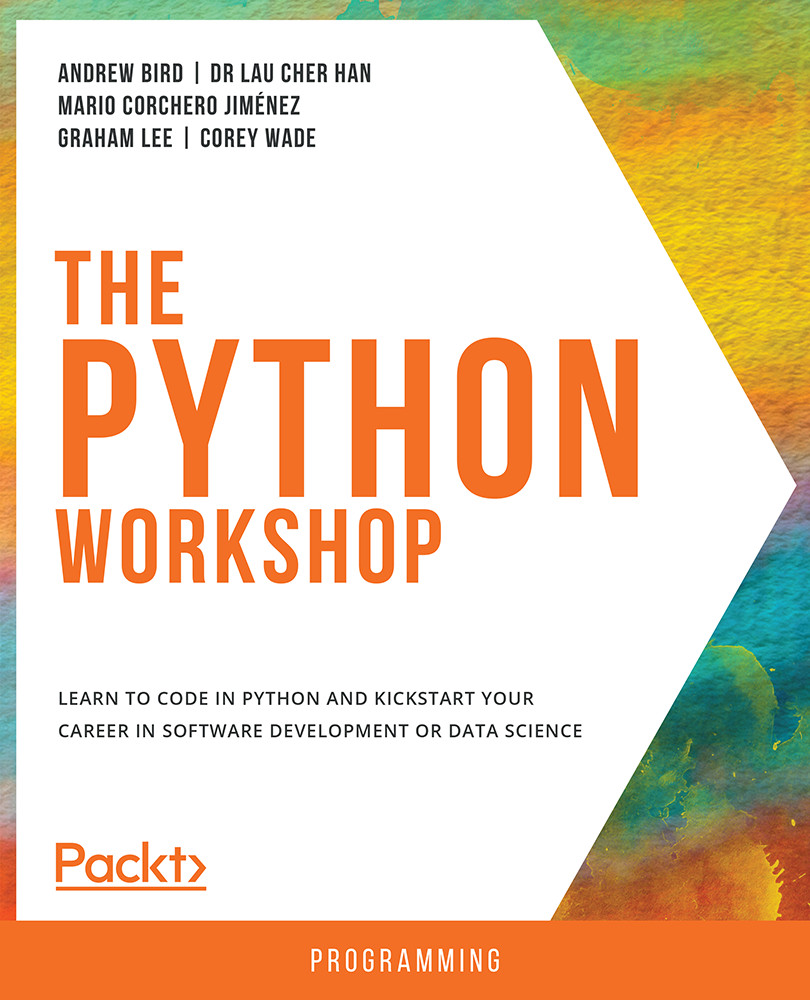-
Book Overview & Buying

-
Table Of Contents

The Python Workshop
By :

The Python Workshop
By:
Overview of this book
 Free Chapter
Free Chapter
 Sign In
Start Free Trial
Sign In
Start Free Trial


 Free Chapter
Free Chapter
In the previous chapters, you saw how we can create our own classes incorporating logic and data. Yet, you often don't need to do that — you can rely on the standard library's functions and classes to do most of the work.
The Python standard library consists of modules that are available on all implementations of the language. Every installation of Python will have access to these without the need for any further steps for the modules defined in the standard library
While other famous languages don't have a standard library (such as JavaScript, which, as of 2019, is looking at implementing one), others have what seems to be an extensive set of tooling and functionality. Python goes a step further by including a vast number of basic utilities and protocol implementations as part of the default installation of the interpreter.
Standard libraries are useful and perform tasks such as unzipping files, speaking with other processes and the OS...

Change the font size
Change margin width
Change background colour